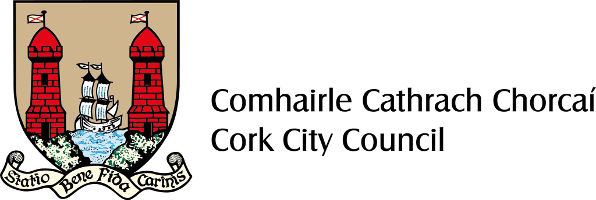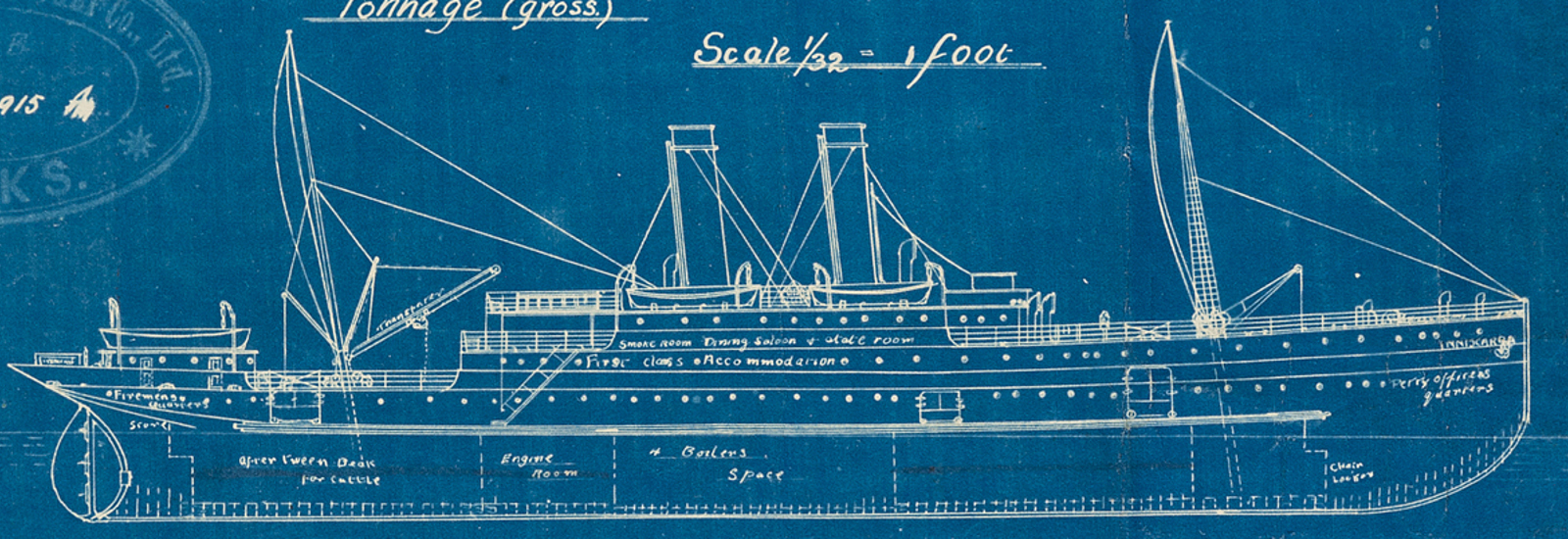The Golden Voiced Soprano - Rita Lynch

Online Exhibition
The CCCA is delighted to present an online exhibition containing over 70 items including photos and other material, from Rita Lynch's personal archive.
The online exhibition was created by CCCA based mainly on items selected by Niamh Kiely, MA student with the School of History, UCC.
Rita Lynch's Personal Archive
The personal archive of Rita Lynch was donated to the Cork City and County Archives in 2019. It is an extensive collection of over 1,400 items, including original letters, telegrams, postcards, newspaper articles and clippings, song books, music sheets, photographs, audio recordings, items related to radio broadcasts, plus several costumes, and other material. A detailed descriptive list of the contents of the archive is available.
View Descriptive List of Rita Lynch's personal archive
The material in the archive is in hard copy and may be accessed in our Research Room by appointment.
About Rita Lynch
Rita Shaw, born Margaret Lynch, performer name Rita Lynch, (b1914 - d2009) was born in Macroom, Co. Cork, into a family rich in musical talent. Her singing career spanned the two decades between 1935 and 1955 during which the 'Golden Voiced Soprano' won every accolade both in competition and in public performance, made records and toured extensively in Ireland, the U.K. and the U.S.
She received her early education, including piano lessons, at the Mercy Convent, Macroom and attended Secondary School at the Ursuline Convent, Blackrock, Cork. It was here that her obvious talent as a singer was nurtured under the watchful eyes of Mother Peter and Mrs. Mary Sheridan, and she was to star in many school productions including 'The Gondoliers'.
Having left school in 1933, Rita continued her voice training with Mrs. Sheridan in Cork and began to make her mark in earnest when she won the Junior Soprano Cup, the Senior Soprano Cup and the O'Neill Cup at the Father Maitiu Feis in Cork. She also made several live radio broadcasts from the 2RN studio in Shanakiel-formerly the Women's Gaol. During this period, she excelled in the Dublin Feis Ceoil where she won the Soprano Gold Cup and the Geoghegan Cup in 1938. The adjudicator, Mr. Toplis Green, pronounced her a singer 'whose breath control was well nigh perfect'.
In 1939 Rita moved to Dublin to study under Miss Jean Nolan. During the same year she won the coveted Count John McCormack Competition, the final of which was broadcast live on radio and attracted huge interest and record listening figures. For the final Rita sang Thomas Moore's 'The Last Rose of Summer' the song with which she was afterwards always associated. In April 1940 she made her operatic debut in 'L 'Elisir d' Amore. The 'Irish Press' reported that, ' ... she sang with rare charm, the lovely quality of her voice being splendidly evident'. In May 1941 she won the Feis Ceoil's most coveted trophy, the Lieder Prize. After the Winners' Concert the 'Irish Press' reported' the outstanding performance of the concert was the singing of 'Der Nussbaum' (Schumann) by Miss Rita Lynch…'.
During the following years Rita travelled the length and breadth of Ireland topping the bill and sharing the stage with many other outstanding performers and musicians of the day. She also sang in Bermingham, Manchester and Glasgow. There were many Radio Eireann broadcasts during that time as well as performances with the Dublin Operatic Society, the Dublin Grand Opera Society and the Radio Eireann Symphony Orchestra.
Highlights of this period included the soprano leads in the bicentennial performance of Handel's Messiah in 1942 and in the centenary performance of Balfe's 'The Bohemian Girl', both at the Gaiety Theatre, Dublin.
Rita married Patrick Shaw in 1945 and returned to live in Cork, having 4 children.
In 1948 Rita recorded three 78” records at the H.M.V. studios, London. The songs included : Mozart's 'Lullaby', 'The Spinning Wheel', 'The Fairy Tales of Ireland', 'Home Sweet Home', 'I Will Walk With My Love', and of course 'The Last Rose of Summer'.In March 1949 at the invitation of the Chicago Tribune's radio station WGN, Rita flew to the U.S.A. and embarked on an exciting three months of concerts, broadcasts and interviews. She travelled between Boston, Chicago and New York and among the highpoints guested for Sir Arthur Fiedler at a Boston Pops sellout performance. She was feted wherever she performed and during her visit she met many celebrities including Irish Government Minister, Sean McBride. The 'Cork Examiner' reported her arrival home on the 27th June 1949 ' ... after a very successful tour of the United States. Miss Lynch sang at the Symphony Hall, Boston to an audience of 2,000 people, and in Chicago for the Corkmen's Association, as well as in many other cities. During her tour she met Michael O'Duffy, the Derry tenor and Countess McCormack. Miss Lynch was met at the airport by her husband, Mr. P.J. Shaw of Cork.'
As well as raising her family of four, Rita continued her singing into the 1950’s. One of her last public performances was at The Palace Cinema, Macroom where she shared the stage with Scottish tenor Fr. Sidney MacEwan.
She became an active member of the Old Ursulines Past Pupils' Union, Cork in the mid 60's and became its President in 1967. She was also President of the Soroptimists in 1973/1974.
Rita pursued a successful career as a singing teacher during the 1970's and in the 1980's and 1990s expressed her artistic talents through oil painting.
In October 1995, at the annual John McCormack Recital, Bank of Ireland, College Green, Dublin, The Vocal Heritage Society of Ireland presented Rita with The Margaret Burke Sheridan Medal for her contribution to singing in Ireland and in 1997 Rita was invited to attend at the Nation Concert Hall, Dublin for an event commemorating the first performance of Handel's Messiah in Fishamble Street, Dublin 250 years earlier and 50 years after the Dublin bicentenary performance.
Rita died in 2009.


